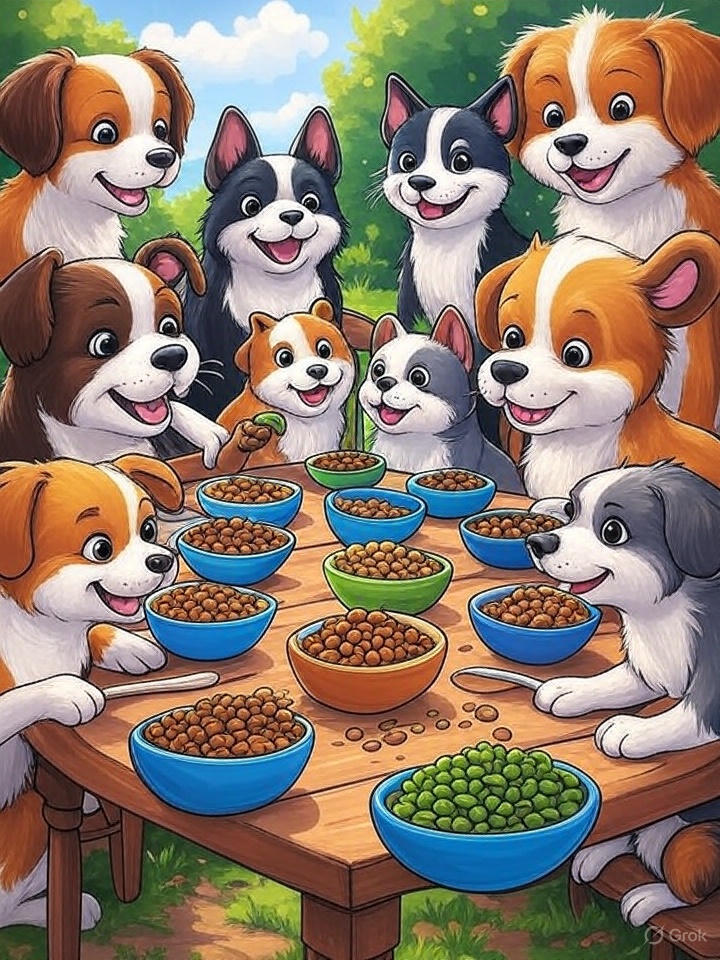2. Essential Nutrients for Pets
Pets, like humans, require a variety of nutrients for optimal health. Each nutrient has a specific role in supporting the body:
• Proteins: The building blocks of muscles, tissues, and enzymes. Sources include
meat, poultry, fish, and eggs. Protein deficiency can lead to weakness, slow growth, and poor coat health.
• Carbohydrates: Supply energy for daily activities. Found in rice, oats, corn,
and sweet potatoes. Balanced carbs improve digestion and help regulate blood sugar.
• Fats: Provide concentrated energy and help absorb vitamins A, D, E, and K.
They are vital for brain health, skin, and coat quality. Healthy fats come from fish oil, chicken fat, and flaxseed.
• Vitamins: Micronutrients that regulate body processes such as vision, blood clotting,
metabolism, and immunity. For example, Vitamin A supports vision, Vitamin D strengthens bones,
and Vitamin E protects cells from damage.
• Minerals: Support bone growth, nerve transmission, and metabolic balance.
Calcium, phosphorus, iron, and zinc are some of the most critical minerals pets need.
• Water: The most overlooked yet essential nutrient. Water aids digestion, regulates
body temperature, and flushes toxins. Pets should always have access to clean, fresh water.
